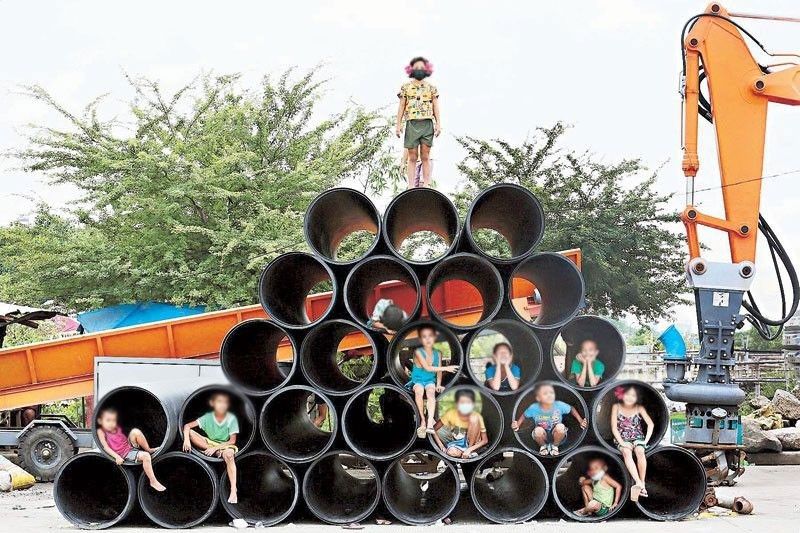Palace defends easing of age restrictions

MANILA, Philippines — After the Inter-Agency Task Force on the Management of Emerging Infectious Diseases (IATF) allowed children 10 years old and above to go out of their homes, presidential spokesman Harry Roque Jr. defended the decision, saying it would be good for a child’s “social and mental health.”
The Palace spokesman said the IATF carefully weighed all sides before they resolved to ease age restrictions in areas under modified general community quarantine starting Feb. 1.
“Filipino children have already stayed in their homes for 10 months now, and allowing those to leave their houses, especially on a weekend activity, is good for their physical, social and mental health,” Roque said in a statement released last night.
He defended the IATF’s move, following questions on allowing children aged 10 and above to go to malls and other areas, despite President Duterte’s decision last Dec. 26 to withdraw approval of the pilot implementation of face-to-face classes in low risk areas after reports of the emergence of the COVID-19 UK variant.
Education Secretary Leonor Briones said it will be up to President Duterte if he will allow the conduct of limited face-to-face classes in light of the IATF decision.
“The decision will be made by the President himself,” Briones said in a text message to The STAR.
When asked if the Department of Education will recommend that the pilot implementation push through, the secretary said it depends on the assessment of the IATF in light of the emergence of the new COVID-19 variant.
“Face-to-face classes and allowing school-aged children to leave their homes differ in their nature, intensity and proximity,” Roque continued.
“For one, physical distancing is difficult to implement in face-to-face classes, given the size of classrooms vis-à-vis the number of students that are enrolled. Also, students attending face-to-face classes would have higher exposure to the virus given the intensity of interaction of children in school with their classmates,” he added, quoting from the IATF discussions.
On the other hand, Roque said children who are allowed to go out on a weekend or during their free time – as online classes or modular learning is ongoing – will be with their parents or relatives.
“It is family bonding and interaction akin to a ‘family bubble’ since it is limited to family members – the same people they are with in their homes – thus, it is safer. Also, activities outside their homes, such as dining out or doing the groceries, would take fewer hours complemented with the observance of public health standards,” Roque said.
Roque also cited observations that “10-year-old children have started to develop their cognitive skills of following instructions from adults. They are less frisky compared to younger children.”
According to him, the IATF decision also “forms part of the overarching goal of reopening the economy, thus promoting recovery.”
“Not easing restrictions may have longer impact on jobs, income, poverty and hunger leading to further economic deterioration as well as health issues. As we said on numerous occasions, the government needs to balance both the re-opening of the economy and controlling the spread of the virus. Rest assured that safeguards and health protocols would be strictly adhered to,” he said.
Meanwhile, at a press conference, Health Undersecretary Maria Rosario Vergeire said they are contemplating on recommending a delay of the easing of age restriction.
“We are thinking, maybe we will recommend not to allow children to go out yet to prevent more infections,” she noted.
Vergeire cited that of the 16 new cases of UK variant detected in Bontoc, Mountain Province; Calamba City in Laguna; La Trinidad in Benguet and in two returning migrant workers from Lebanon, three were aged five, 10 and 18.
The official, however, underscored that when the IATF decided to allow those aged 10 to 65 to go out, it was with the condition that the minimum health standards against COVID-19 would be strictly observed by the public.
“This position of the IATF is to balance economy with health… Nevertheless, we will listen to the IATF,” she added. – Janvic Mateo, Sheila Crisostomo
- Latest
- Trending





























